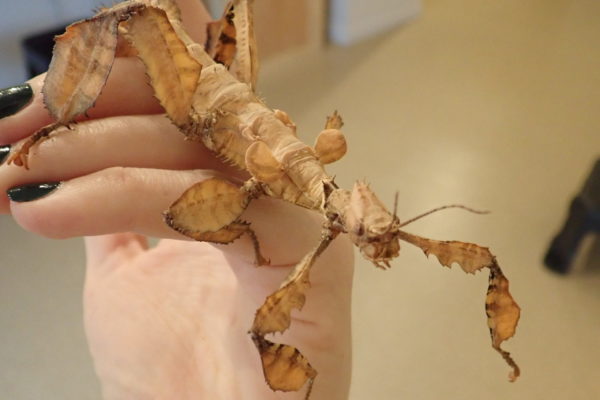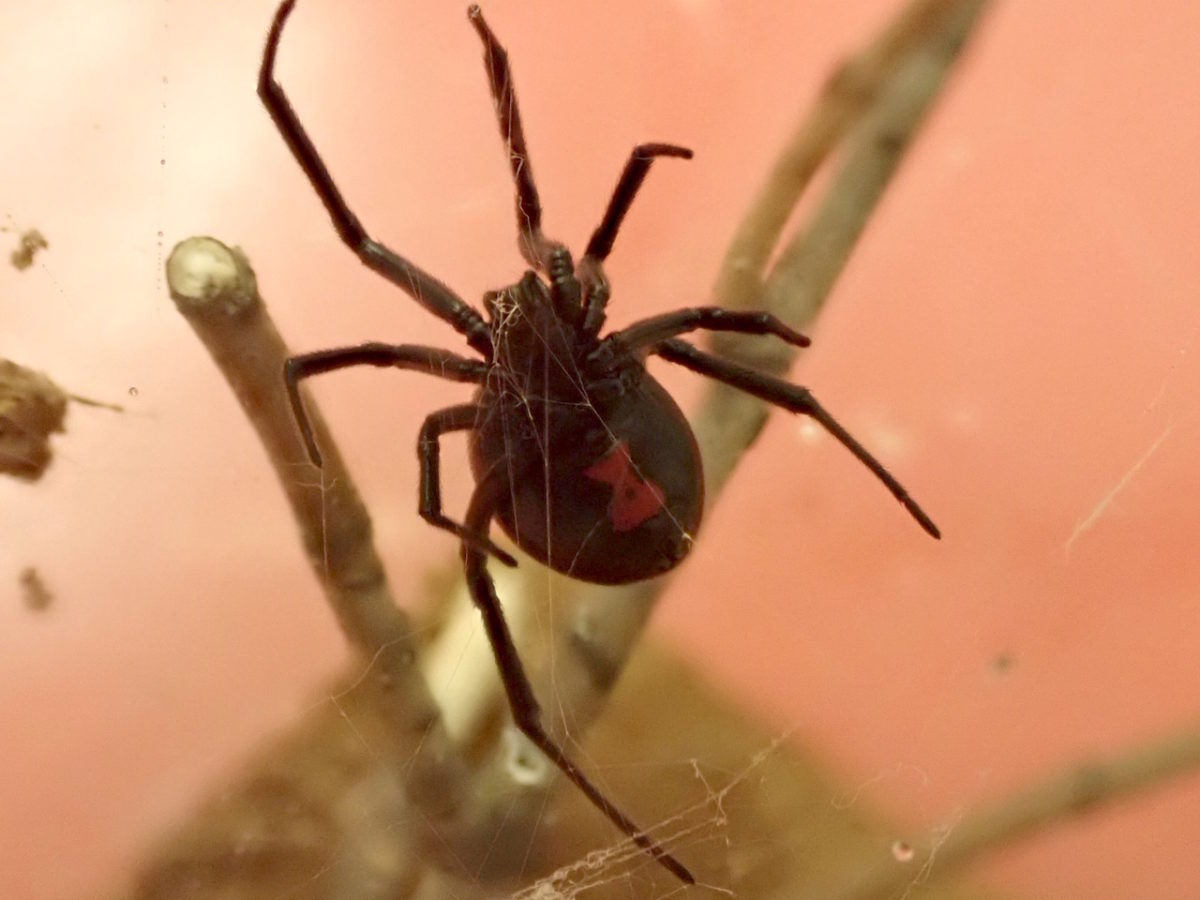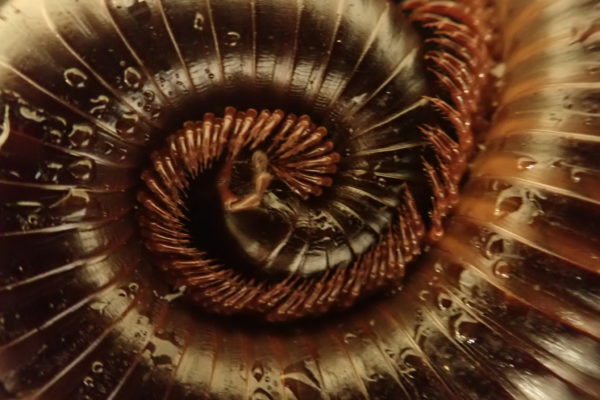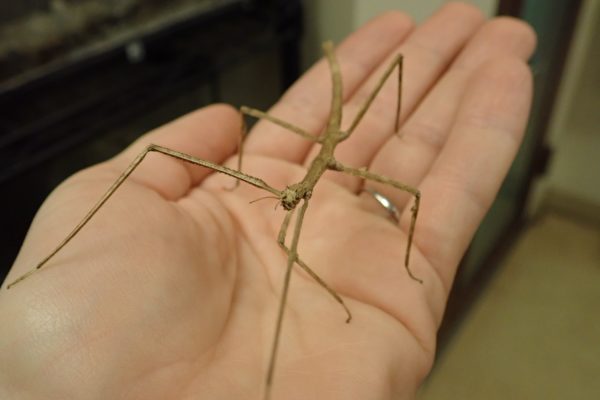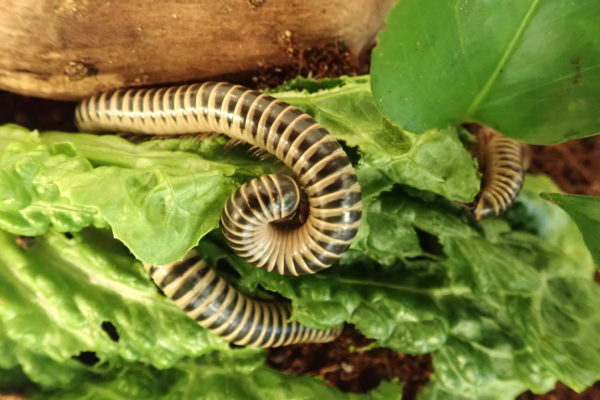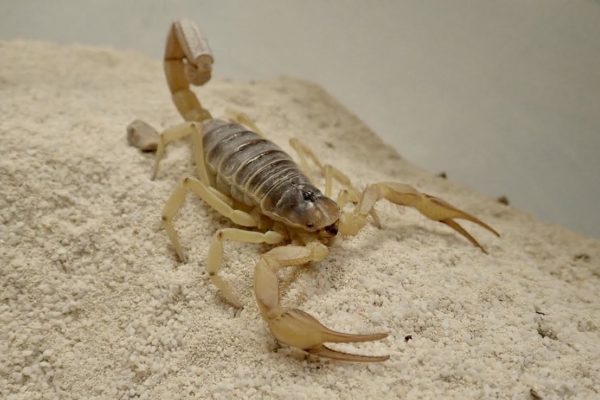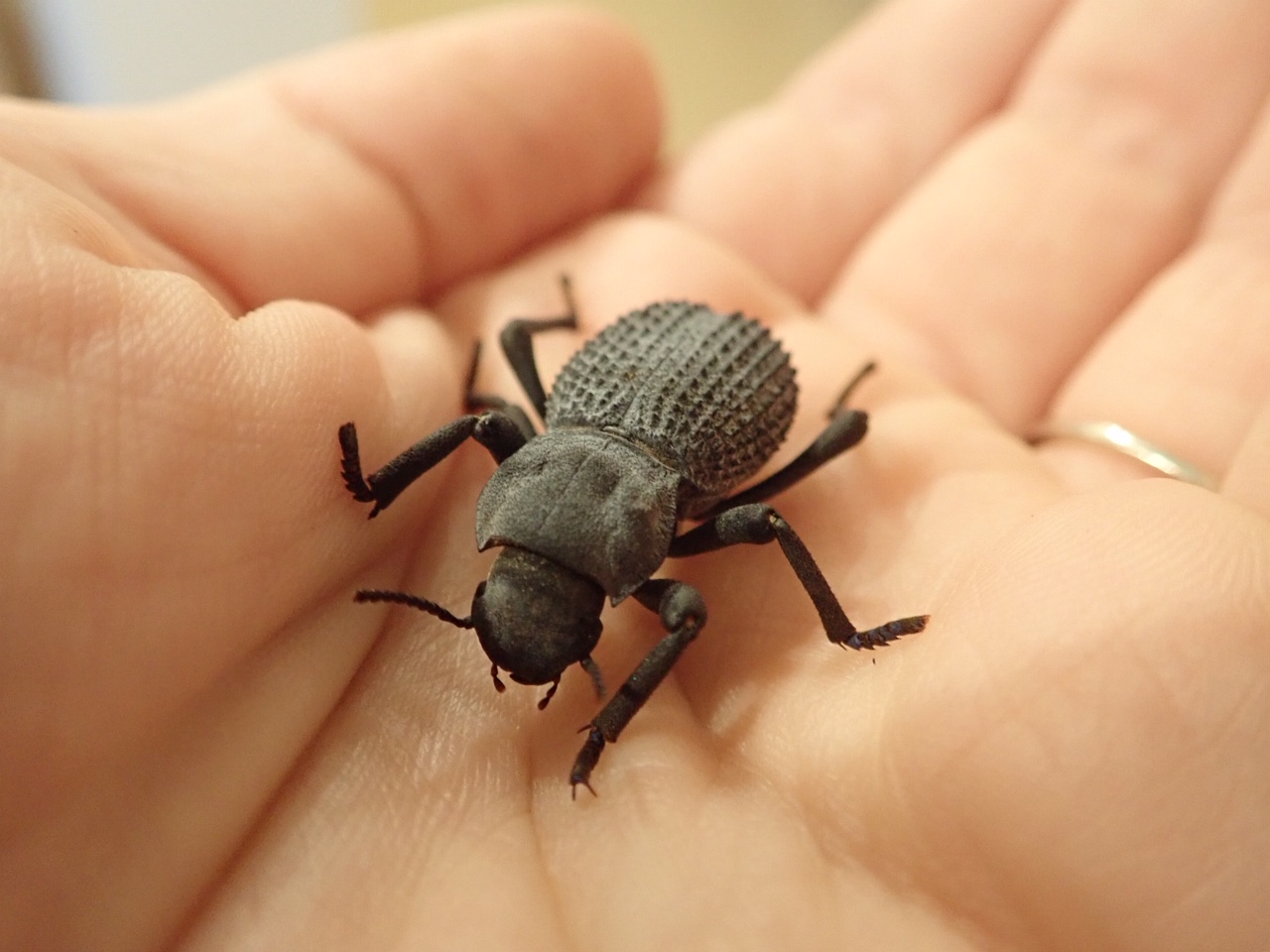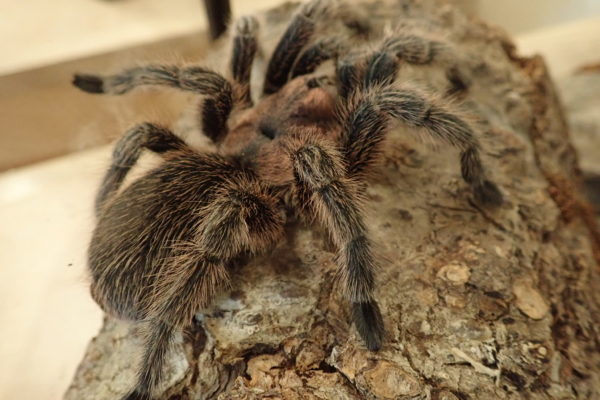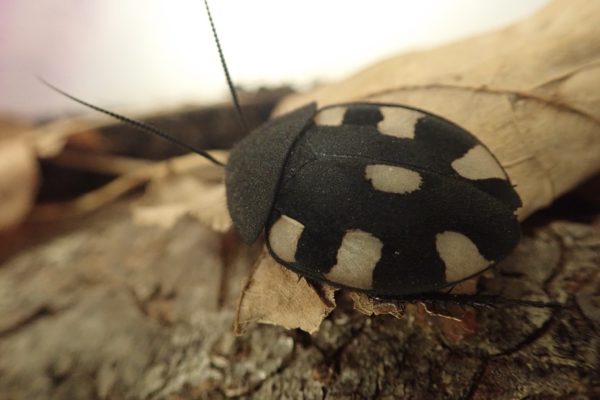One of our more popular bug ambassadors, the Giant Prickly Stick Insect, is not actually prickly, she just looks that way. It’s a great tactic to avoid being eaten; the […]
Read MoreLatrodectus hesperus
The Black Widow is the most venomous spider in North America, so when she joins us at outreach events, it’s an “eyes only” experience. Black Widow spiders are typically not […]
Read MoreGromphadorhina portentosa
Do cockroaches give you the heebie-jeebies? Have no fear! You will often meet our Madagascar Hissing Cockroaches at the mobile Encounter Cart, where you will learn just how friendly these […]
Read MoreArchispirostreptus gigas
Millipedes, like crustaceans and arachnids, are not insects, but they are arthropods! The Giant African Millipede is the largest millipede in the world, and can be found in east Africa. They […]
Read MoreMedauroidea extradentata
Belonging to the family Phasmatidae, our Vietnamese Walking Sticks are very friendly and are often featured at our mobile Encounter Cart. Come interact with this special herbivore and learn about […]
Read MoreChicobolus spinigerus
Our Florida Ivory Millipedes are important decomposers that live in the southeastern United States. Their job is to break down decaying organic matter and turn it into soil for new […]
Read MoreHadrus arizonensis
Desert Hairy Scorpions are the largest species in North America! Like all scorpions, Harry is nocturnal and feeds at night. He’s often hanging out under his hide, but can be […]
Read MoreAsbolus verrucosus
The Blue Death Feigning Beetle is probably our most kid-friendly animal. Their reinforced exoskeleton and slow-moving, clumsy nature makes them a great beetle for first-time-bug-ambassador-encounters. They typically join us at […]
Read MoreGrammostola rosea
We have not one, not two, but four Chilean Rosehair Tarantulas. Tarantulas typically eat just once a week, so if we have multiple events where we want to show off the […]
Read MoreTherea petiveriana
Our Domino Cockroaches are the cutest roaches around! Their distinctive pattern is an excellent example of Batesian mimicry; it mimics a local type of poisonous leaf beetle, in an attempt […]
Read More